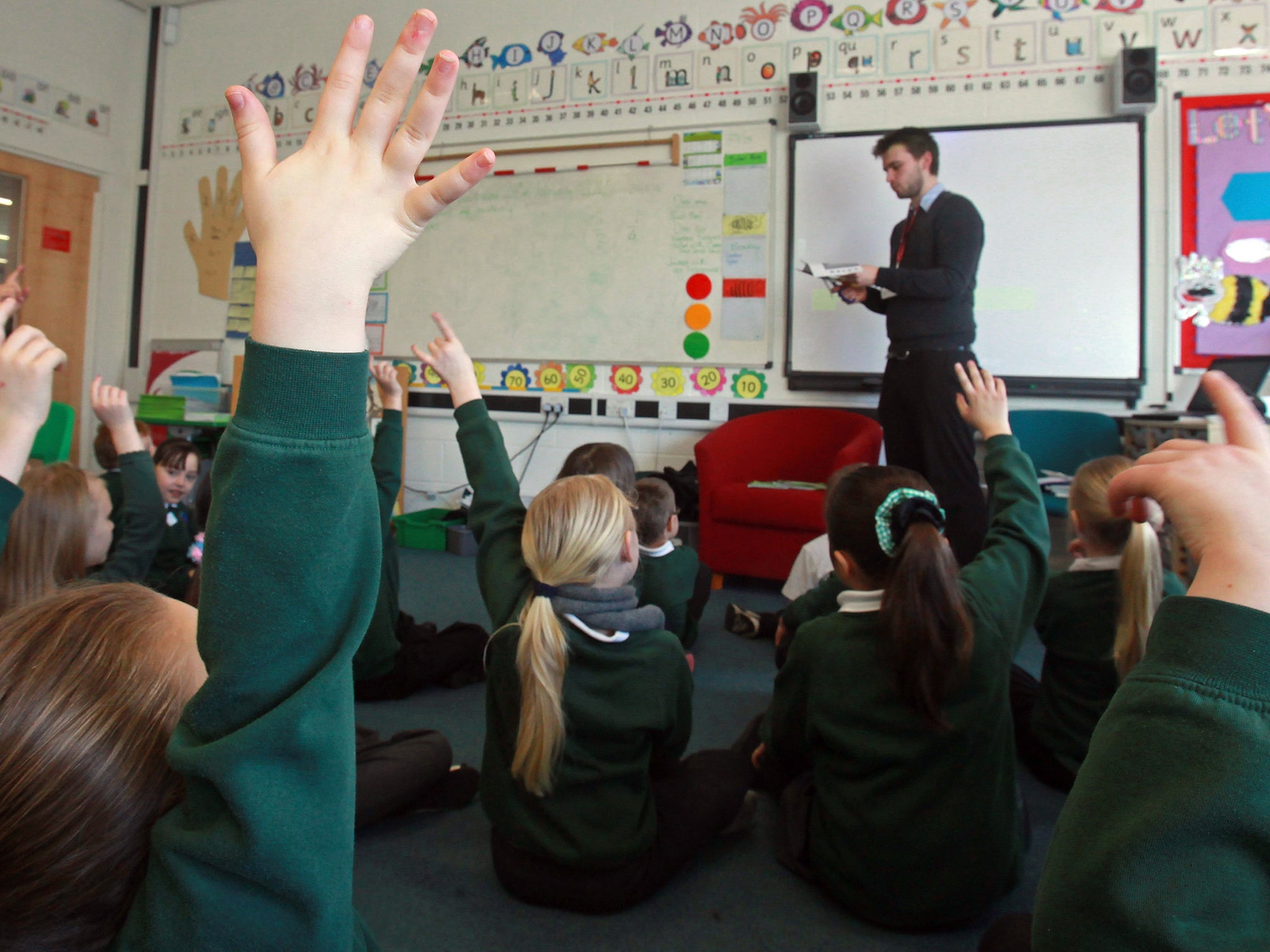If only every state grammar school would try to level their admissions playing field
In Birmingham is a significant educational institution not resting on its boater and laurels

The ability of the middle classes to get their way is legendary. But even though I was once described on TV as “so middle class that my taps run with Balsamic vinegar”, I cheered when I read that five state grammar schools in Birmingham have set a lower 11-plus entry demand for children from poorer homes. Almost overnight, this has resulted in 20 per cent of highly sought-after places going to children entitled to the “pupil premium” (a government initiative which gives extra funding to disadvantaged children).
The children weren’t given a massive leg-up; their qualifying score was only 7 per cent lower than required from better-off children. But it was enough. The five schools have significantly changed what has become a shameful malaise.
Only 164 state grammar schools remain in England, but their former character as centres of academic excellence which could also be the key to social mobility, has long gone. In many cases they now simply represent private schools without the fees.
The figures speak for themselves. The number of children at selective grammar schools on free school meals, (another measure of poverty), is typically minuscule compared to the national average. In Birmingham it was 4 per cent – tiny when compared to the local average (36 per cent).
What with galloping school fees and plodding incomes, thousands of middle-class families now regard state grammar schools as saviours. These are local schools offering great education, easily on a par with the private sector, but with no nasty fees. Get our children in there! Private tutors specialising in cramming children through the 11-plus examination now have waiting lists of over a year, thanks to the anxieties of middle England.
In fairness, some oversubscribed schools, both grammar and state selective, have sought to address the problem of middle class exclusivity, and looked to the entrance demands in the hope that it might not be all about knowing about 1066 and all that.
Some have attempted the hideous Non-Verbal Reasoning approach, which tries to test intelligence via a paper supposedly requiring no cramming. Students are given things such as pictures of shapes, and asked to anticipate how they might look in a mirror. Or they are given patterns of numbers to predict. But all that happened was that wealthy parents found and promptly hired tutors who were suddenly expert in Non-Verbal Reasoning Training.
Frankly, if selective grammar schools said they would only admit children who were brilliant at basket weaving while speaking Mandarin, underwater, you can guarantee that specialist tutors focusing on these skills would spring up across the country.
Other families have done the maths and worked out that it is quite a lot cheaper to pay for your child to be crammed at a private prep school, and be bounced into a state grammar school, rather than face the horror fees later on. So they have “done the private thing” until little Johnny is aged 11. This has the advantage that when Johnny turns 18, he will be classed as a “state-schooled student”, which, as we all know, university admissions tutors rather like.
It is to the immense credit of the Foundation of the Schools of King Edward VI, which runs the five Birmingham state grammars as well as the ancient King Edward’s private school (and its female equivalent), that it saw this fundamental change in the nature of the state grammar, and has done something effective about it.
In addition, it has appointed a director of outreach, specifically tasked to link up with primary and junior schools to encourage and prepare pupils to apply. I suspect he hopes to address pupils whose parents are not already flipping through past papers and swapping the phone numbers of private tutors with one another.
Plenty of private schools bleat on unconvincingly about their concern to see the education of all children improve, how they long to help, and so on. As evinced by their foot dragging and paltry generosity when it comes to theatres, sports facilities and the like, one can usually dismiss these claims as mere lip service.
Here, however, in Birmingham is a significant educational institution not resting on its boater and laurels, but actually doing something about our grotesque educational imbalance. And it has worked, fast. The 20 per cent target was reached in the first year. Of course, a few parents jumped up and down, claiming “two-tier testing” is an evil designed to keep their child out of a decent school, but the Foundation was determined, and it has prevailed.
Would but the remaining 159 state grammars in England could take note, and change their admissions playing field from a supposedly “level” one to a mildly unlevel – but fairer – one. “This is a major step in changing the social diversity within the selective grammars,” says the Foundation of the Schools of King Edward VI. What an utterly brilliant move.
Join our commenting forum
Join thought-provoking conversations, follow other Independent readers and see their replies
Comments
Bookmark popover
Removed from bookmarks